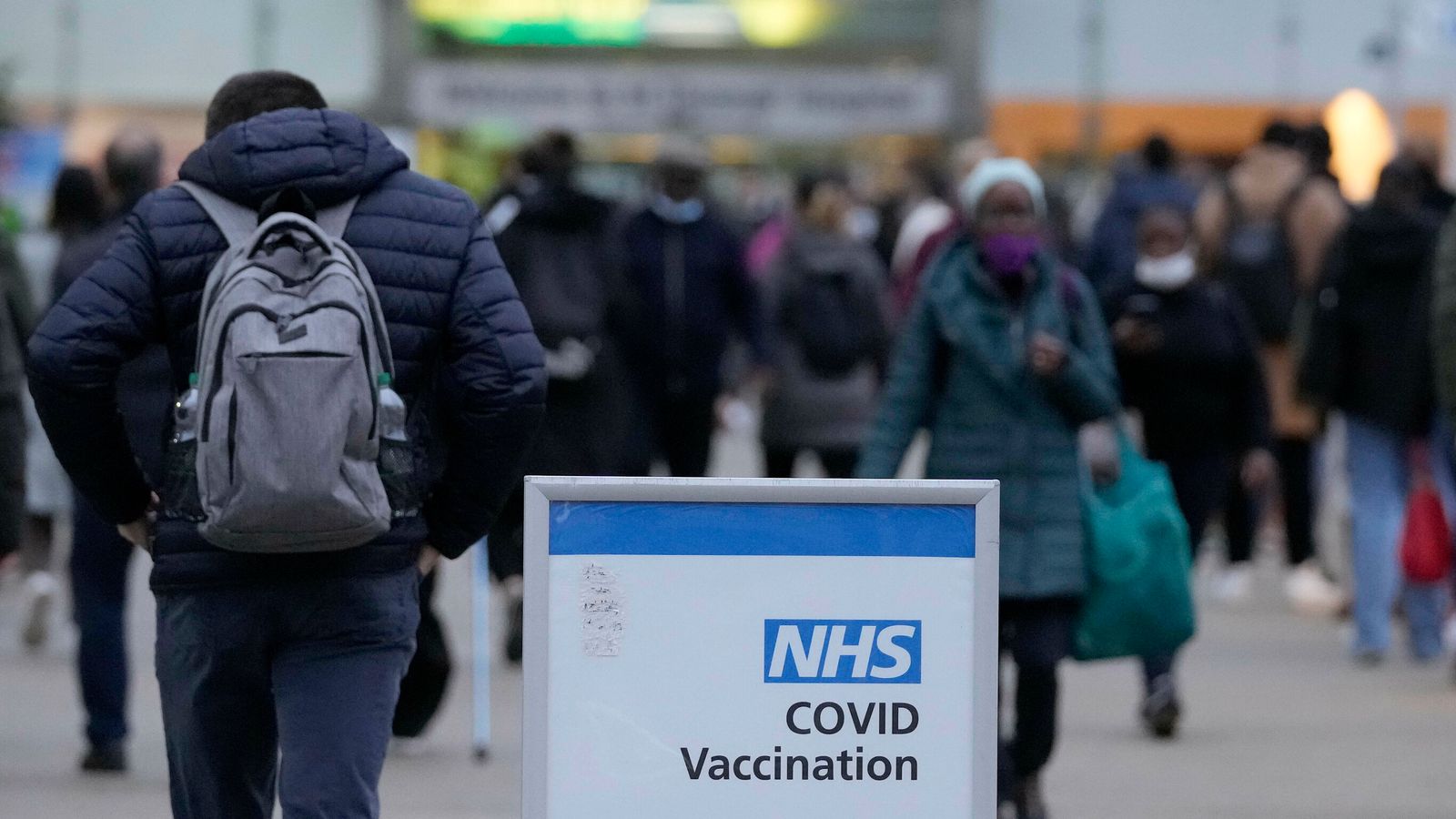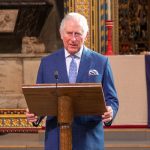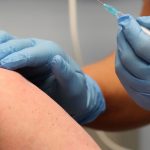Another 78,610 COVID cases have been recorded in the UK, the highest daily number since the start of the pandemic.
The previous record was on 8 January 2021, when 68,053 were reported.
The government also reported a further 165 deaths within 28 days of a positive coronavirus test. This time last week, 161 deaths were recorded.
Live COVID updates as PM reinforces vaccination message at Downing Street news conference
#OmicronVariant latest information
4,671 additional confirmed cases of the #Omicron variant of COVID-19 have been reported across the UK. Confirmed Omicron cases in the UK now total 10,017.
NOTE: Important information about case data in thread below⬇️ pic.twitter.com/gXoellwtPa
This time last week, 8 December, 51,342 coronavirus cases were reported.
The record number of lab-confirmed cases should “worry us all”, the chief executive of NHS England has said.
Asked about the news, Amanda Pritchard told the Commons Public Accounts Committee: “That is a stark reminder of why the current national mission to get COVID vaccination is the right one.”
Shaun Bailey: Former Tory London mayoral candidate apologises for attending party during heightened COVID restrictions in capital
COVID-19: ‘Big numbers’ of coronavirus patients in hospital after Christmas due to ‘phenomenal’ Omicron spread, warns Whitty
COVID public inquiry: Former appeal court judge Baroness Hallett to chair probe
She added: “I think that figure should worry all of us and that’s why the booster programme is so important.”
A further 4,671 cases of the Omicron variant have been confirmed – bringing the total to 10,017. Today’s figure includes some additional cases from yesterday, which were not recorded at the time “due to a data issue that is now resolved”.
The UK Health Security Agency (UKHSA) added: “A change to the case definition also contributes to the rise in Omicron cases we see today.”
In the latest 24-hour period where figures are available, another 774 COVID patients were admitted to hospitals in the UK – with the total now 7,673, including 896 on ventilators.
This is slightly up from the same time the previous week when 738 patients were admitted.
Meanwhile, yesterday 34,082 people received their first dose of a vaccine, while 37,888 were given a second. This means 46,842,497 people have received two jabs so far, equivalent to 81.5% of the population.
And 656,711 booster or third jabs were administered bringing the UK total to 24,732,162 people – equivalent to 43% of the population.
Is it possible to offer every over-18 a booster vaccine dose by New Year’s Eve?
The figures come one week after Boris Johnson toughened COVID-19 rules in England amid concerns over the increasing spread of the Omicron variant.
From today, the use of coronavirus health certificates to demonstrate vaccination or a negative test for entry into large venues in England has become mandatory – despite a rebellion from Conservative MPs last night as it was voted through the House of Commons.
Mr Johnson held a Downing Street news conference on Tuesday evening where he reinforced the importance of the vaccination rollout, while England’s chief medical officer, Professor Chris Whitty, warned “records will be broken a lot over the next few weeks” as COVID rates continue to rise across the UK.
The prime minister did not announce any further restrictions however, during a visit to Gordon Hospital today the health secretary refused to rule out any further restrictions in the future.
Sajid Javid, when asked if more guidance would be issued, said: “We keep the whole situation under review. It is fast-moving, I think people understand that.
“The case numbers are still sadly rising rapidly, we have been very open about how quickly this new variant spreads, we have seen it double in terms of infections every two to three days across the country.”
Omicron has overtaken Delta as the dominant coronavirus variant in London.
Follow the Daily podcast on Apple Podcasts, Google Podcasts, Spotify, Spreaker
Chief executive of the UKHSA Dr Jenny Harries told MPs that the new variant was “probably the most significant threat we’ve had since the start of the pandemic“.
She also warned of a “staggering” number of cases in the next few days compared with what has gone before.
We’ve got two epidemics happening at the same time in the UK now.
Delta is still spreading rapidly through children and in unvaccinated people. But on top of that, you have also have Omicron, which is really racing through large sections of the population – including those who’ve had two doses of the vaccine.
That is why we’ve seen a huge rise in the number of daily cases – 10,000 more than the previous record last January.
It is an extraordinarily rapid rise of Omicron which will drive those numbers even higher as we close out the year.
Dr Jenny Harries, the head of the UK Health Security Agency, told MPs earlier that cases are doubling every 1.9 days.
The UKHSA has also begun releasing data on suspected Omicron cases, using a genetic marker on PCR tests to distinguish the variant from Delta. It’s a much faster way of tracking the variant than genetic sequencing.
The data shows there are five patients suspected to have Omicron in hospital, on top of the 10 confirmed cases we know about it, and we have got more details on where the hotspots are.
In London, just over 51% of COVID cases are due to Omicron, making it the dominant variant. In the last five days alone this proportion has risen from 5%.
But the east of England, the southeast, and the northwest also have high rates – between 20-26% of samples taken in the last few days are due to Omicron.
If the other three regions with England follow the growth curve in London you can expect Omicron to become the dominant strain there too in just a very short period of time – probably three or four days.






















